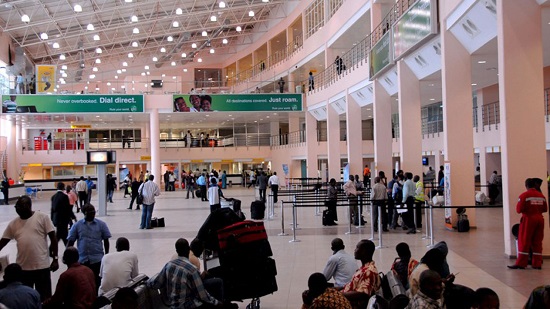This post has already been read 1195 times!
• Passenger travel to rebound 2021, full recovery 2023
World airlines yesterday faulted arrival quarantine measures at airports as part of in-country’s measures to check coronavirus disease among passengers.
The airlines, under the aegis of International Air Transport Association (IATA) urged governments to find alternatives to maintaining or introducing arrival quarantine measures as part of post-pandemic travel restrictions.
The body said quarantine measures on arrival would further damage confidence in air travel, while a risk-based layered approach of globally harmonised biosecurity measures is critical for the restart.
Meanwhile, a new analysis has shown that the damage to air travel from COVID-19 extends into the medium-term, with long-haul or international travel being the most severely impacted and might not fully recover until 2023.
IATA’s April survey of recent air travelers showed that 86 per cent of travelers were somewhat or very concerned about being quarantined while traveling, and 69 per cent of recent travelers would not consider travelling if it involved a 14-day quarantine period.
IATA’s Director General and CEO, Alexandre de Juniac, yesterday said even in the best of circumstances, this crisis would cost many jobs and rob the economy of years of aviation-stimulated growth.
So, to protect aviation’s ability to be a catalyst for the economic recovery, “we must not make that prognosis worse by making travel impracticable with quarantine measures. We need a solution for safe travel that addresses two challenges. It must give passengers confidence to travel safely and without undue hassle.
IATA’s proposal for a temporary risk-based layered approach to provide governments with the confidence to open their border without quarantining arrivals includes preventing travel by those who are symptomatic with temperature screening and other measures, addressing the risks of asymptomatic travelers with governments managing a robust system of health declarations and vigorous contact tracing.
The mutual recognition of agreed measures is critical for the resumption of international travel. This is a key deliverable of the COVID-19 Aviation Recovery Task Force (CART) of the International Civil Aviation Organization (ICAO).
“CART has a very big job to do with little time to waste. It must find an agreement among states on the measures needed to control COVID-19 as aviation re-starts. And it must build confidence among governments that borders can be opened to travelers because a layered approach of measures has been properly implemented globally. IATA and the whole industry support this critical work,” de Juniac said.
He added that in 2021, the aviation community expected global passenger demand to be 24 per cent below 2019 levels and 32 per cent lower than IATA’s October 2019 Air Passenger forecast for 2021.
“We don’t expect 2019 levels to be exceeded until 2023. As international markets open and economies recover, there will be further growth in air travel from the 2020 low point. But even by 2025 we would expect global Revenue Passenger Kilometers (RPKs) to be 10 per cent lower than the previous forecast.”
In this case, global RPKs in 2021 could be 34 per cent lower than 2019 levels and 41 per cent below our previous forecast for 2021.
“Major stimulus from governments combined with liquidity injections by central banks will boost the economic recovery once the pandemic is under control. But rebuilding passenger confidence will take longer. And even then, individual and corporate travelers are likely to carefully manage travel spend and stay closer to home,” de Juniac said.
An IATA survey of recent air travelers conducted in April 2020 found that 58 per cent are somewhat or very likely to restrict their initial travel to domestic journeys.
Domestic Revenue Passenger Kilometers (RPKs) will only recover to 2019 levels by 2022. International RPKs are only expected to return to 2019 levels in 2024.
“The impacts of the crisis on long-haul travel will be much more severe and of a longer duration than what is expected in domestic markets. This makes globally agreed and implemented biosecurity standards for the travel process all the more critical. We have a small window to avoid the consequences of uncoordinated unilateral measures that marked the post-9.11 period. We must act fast,” said de Juniac.



